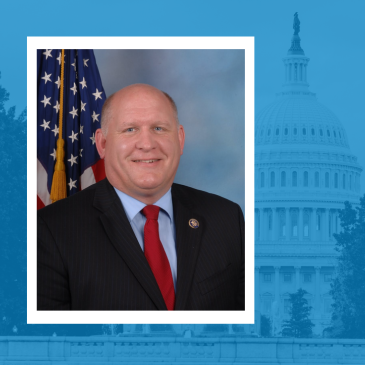 Congressman Glenn “GT” Thompson (PA-15) was the featured speaker during a virtual meeting last Tuesday in which he shared new developments in federal energy policy with PA Chamber members and industry stakeholders.
Congressman Glenn “GT” Thompson (PA-15) was the featured speaker during a virtual meeting last Tuesday in which he shared new developments in federal energy policy with PA Chamber members and industry stakeholders.
In his update, Congressman Thompson, who chairs the powerful House Agriculture Committee, underscored energy’s significance in shaping the state’s past, present, and future. He referenced the world’s first- and longest- continuously operating commercial oil wells, both of which are in Pennsylvania’s north-central based 15th District.
Pennsylvania’s energy sector supports more than 420,000 jobs and contributes more than $75 billion to the state economy. In addition to its direct economic impact, Thompson also highlighted the importance of reliable, low-cost energy for heating homes, powering businesses, and generating tax revenue.
Congressman Thompson criticized the Biden administration’s energy policies as a major driver of inflation and cited several pieces of legislation he and his colleagues have advanced to reduce costs for American families and advance domestic energy production, including H.R. 1.
“By utilizing the Commonwealth’s resources, we can create jobs and create opportunities in communities that are suffering under these anti-energy policies,” Thompson said. He also spoke about additional measures aimed at reducing bureaucratic hurdles in approving critical energy projects while maintaining key safety and environmental standards.
Congressman Thompson outlined several updates to the National Environmental Policy Act (NEPA) that were recently signed into law as part of the Fiscal Responsibility Act, following negotiations over the federal debt ceiling. Among these reforms, Thompson said, are provisions eliminating burdensome reporting requirements and establishing clearer chains-of-command when multiple federal agencies are involved in the same project.
Thompson’s update also covered topics ranging from hydrogen hubs to rural broadband, emphasizing the need for proactive policies to harness Pennsylvania’s energy resources.
Answering a query from the PA Manufacturer’s Association on the Biden administration’s plans to ban liquid natural gas (LNG) transit by rail, Congressman Thompson voiced concerns about the potential impact such a measure would have on American families, employers, and jobs. He pointed to Congress’ annual appropriations process as a source of leverage against harmful executive branch proposals.